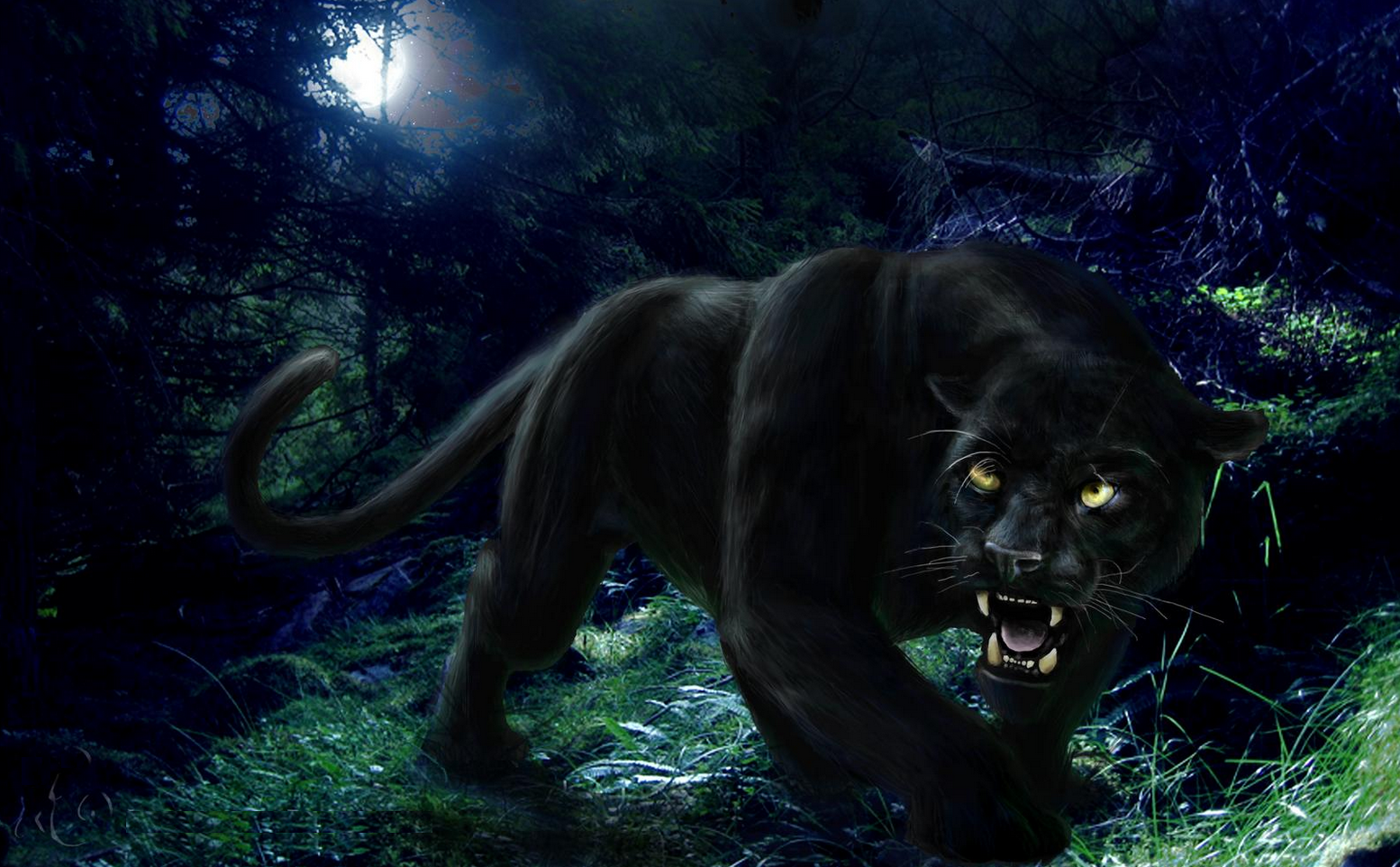Editor’s note: The following is extracted from The Adventures of Gérard, the Lion Killer, by Jules Gérard, translated from the French by Charles E. Whitehead (published 1856). All spelling in the original.
(Continued from Part 1)
With the dawning of the day, more than two hundred Arabs, men, women and children, climbed the hills to see their fallen foe, and heap insults on his head; and the Sheik Taïeb informed me that while I had been watching the young ones, the seignor with the big head, accompanied by his wife, had visited the plain and carried off from him another cow for their breakfast.
Although the history of this famous enemy of Taïeb’s has no relation to the history of the panther, which I am writing, yet still I cannot resist narrating the manner of his death, which occurred in the following year. Although scarcely a twelvemonth had elapsed since I had waited for him at the ford of the Ouled Cherf, yet the sum of his wickedness had increased to a dreadful extent. Horses, sheep, beeves and belated herdsmen, all followed the same capacious road, and still his appetite remained unsatisfied. One of the people of Mahouna, a herdsman named Lakdar had lost by his attacks, forty-five sheep, one horse, and twenty-nine beeves, and then came to me for redress; and I found myself at his tent on the evening of the 13th of August. On the 26th of the same month, Lakdar came to my tent, saying, “the herds have come home without the black bull, and I am going to see if I can find his body; if I do, woe betide the robber that stole him.” And he took the road leading to the jungle.
On the following morning about daybreak, on awakening, I found Lakdar squatted by my bed-side, with a grim smile of anticipated pleasure athwart his dark face. His burnous was dripping with dew, and his dogs that were stretched by his side were dappled with mud that was made by the last night’s storm.
“Good morning, brother,” he said, “I have found him, let us go.”
Without a word of question, I took my arms, and we left the douar.
After a long walk through the forest of wild olives, we followed a ravine where broken rocks, and impenetrable thickets made our progress almost impossible. But after reaching the extremity of the woods, in the wildest part of the cover, we came upon the remains of the black bull. The thigh and breast had been eaten, and then the lion had turned the body over so that the whole side was upper most.
I said to Lakdar, “Go, and bring me a cake and a flask of water, and let no one come here until to-morrow.” After he had returned with my dinner, and I had eaten, I placed myself in position at the base of a wild olive, and within three steps of the dead body. I cleared the branches away from before me, and placed them in such a manner that they would conceal my body from behind, and then awaited the result.
The day wore wearily away, the evening came on, and light and sound died away together in the forest. The feeble light of the setting moon just reached the retreat where I was crouched. I could only see the trunks of the neighboring trees, and the dead body of the bull, where a silver flake of light was gradually fading, and I listened with attentive ear for every sound.
Presently a branch cracked beneath the gentle tread of some heavy animal, and I took my position with my right knee on the ground, and my left arm leaning on my left knee, supporting my rifle. I gazed along the barrel, waiting yet hearing nothing more except the steady beat of my own pulse. Another moment passed, and then another in utter stillness. At last from within thirty paces in front came a hollow roar, gradually approaching as it died away. Then followed a guttural murmuring, which is the sign of hunger with the lion, and then a perfect stillness. I heard nothing more until I saw his immense head over the shoulder of the bull which he commenced to lick slowly, keeping his eye fixed on me. I took aim at his eye and fired. He sprang up on his hind feet with a roar, exposing his breast, which made a fair mark for my second barrel, and he fell over where he stood, directly on his back, moving his enormous feet backward and forward. After reloading, I approached him, and believing him nearly dead, attempted to stab him with my yatagan behind the shoulder, but a quick motion of his fore leg broke the steel short off, and I was only saved from the blow by jumping quickly backwards. Two more bullets driven into his brain and the desert of Mahouna had lost its king, the seignor with the big head.
Now we will return to our hero the panther.
I have said that this animal lives by the product of the chase, that he follows in the jungle with the zeal of an ardent hunter; yet this does not prevent his seizing a sheep or calf that may be found wandering in the neighborhood of his haunts, and many are the losses the frontier settler has to undergo on his account.
The people of Ouled Yagoub and Beni Oonjenah of the Aures, say that when a panther has killed a sheep or other animal for which he has no immediate use, he carries the body up to the forks of some high tree, where it will be safe from the prying jackal and hyena, until the time of need.
The panther makes his home in the ledges of rocks that are frequently found in this country, and finds in their crevices or closely wooded clefts a secure retreat against his bitter enemy the lion, and becomes the terror of the families of porcupines that inhabit with him the ledges of rocks. The porcupine is covered with sharp quills from his tail to the commencement of his head, and when attacked suddenly draws in his head and raises his quills, becoming thus invulnerable to the most of his foes. But, alas, the panther out-herods Herod, and has a cunning and quickness that are more than a match for his well-armed prey. He watches for consecutive days the hole of a porcupine, and the moment the animal protrudes his head from his den, with one stroke of his claws he clutches the head, and whips the body out of its retreat before the poor beast is aware of the presence of his foe.
When I first hunted in Africa, I attempted to hunt the panther in the same manner that I hunted the lion, but it was not long before I found that I was on the wrong track. As the lion by night stands to meet or searches out the hunter, so on the contrary the panther flies and hides from him. I will cite an example of the cunning and timidity of this animal that came under my own notice in the summer of 1844, in the neighborhood of Nech Meia.
I learned that one of the larger species of panthers had taken up his abode in a ledge of rocks known by the name of Ajar Mounchar, to the great perturbation of the sheep and porcupines that frequented the neighborhood. As I was quartered with a detachment at two leagues distant, I immediately left my comrades, and came to the place designated by the Arabs. It was five o’clock in the day when I arrived, attended by a man from that part of the country to indicate the place; and as we rode up we saw the panther retiring to her den with some small animal in her mouth that looked like a racoon. I could have had a shot at her at a hundred and twenty-five yards, but I thought it better to let her retire quietly to her den, and take a nearer shot by watching for her when coming out.
After having sent off my Arab with my horse, with directions to come back for me at daylight the next morning, I softly approached the cavern where I saw the animal disappear. The entrance to her den was so narrow that I could scarcely understand how an animal that was nearly the size of a lioness could have passed through it, and if I had not seen the marks of her feet in the sand, and against the sides of the rock, I should have thought that I had been mistaken. I noticed a mastic tree about ten paces up the hill that I selected as a place of concealment, and stretched myself behind it in such a manner that I could not be seen by the panther until she had got three or four yards from the mouth of her den.
It was about ten o’clock in the evening, when I heard several sharp and quick repeated growls behind me, and on the other side of the tree, and fearing lest I might be surprised, I turned my head to see what was going on behind me. Unfortunately, my gun struck a branch of the tree, as I moved. The growls ceased, and a hissing spit was heard, like that made by a cat, when at bay; then I heard the quick steps of a retreating animal, and the panther fled into her hole. I only caught a glimpse of her as she entered it. I waited till daylight without her daring to come out of it.
With the dawn of the day, I saw my Arab coursing over the plain, leading with him my saddle-horse, and I rode to the douar, with the promise of returning at evening.
I was at my post when the first star opened its eye in the heavens; but the night passed quietly away without any result. The panther once or twice put her nose outside of the rocks, but immediately retreated on the suspicion of danger.
After this same fashion, I passed ten consecutive nights alone on that rocky hill, without even the chance of a shot. On the eleventh day, a shepherd came to me to say, that he had seen the panther about noon, drinking from a brook near the rocks. I immediately followed my man to the brook he spoke of, and without any trouble I distinguished the foot-prints of my friend among the numerous trails that crossed and recrossed the brook in every direction. Judging from the age of the foot-prints, and what had been seen by the Arab, I came to the conclusion the panther was in the habit of leaving her retreat with the noon-day heat (which in the African wilds, is an hour of solitude and rest to all the world, when man and herds alike, retire to sleep), and coming to the brook to drink and refresh herself.
The brook was shaded by trees, and hidden by thickets on every side, so that I could conceal myself, and have a near shot at her ladyship, when she stopped to drink. I acted on this plan, and in a moment was hidden in the dense thicket, with my view bounded on every side by the woods, which grew to the water’s edge. Towards noon a perfect silence reigned in the woods, as though nature had fallen asleep in the sultry stillness. An occasional bird, or insect, would move by stealth, but slowly, as though languid with heat. Presently a covey of red partridges loitered down to the water to drink; as the hens were raising their panting bills with their first mouthful of water, the cock manifested signs of anxiety, and gave the call of alarm, and in a moment they had taken flight.
I watched for the cause. In a moment more a branch moved, but without noise, and then I saw the panther gliding lithely through the cover to the water’s edge. Here she paused with her head turned aside, and her foot in air, like a pointer dog.
She might have been six or eight steps from me; exposing her side with her head turned half away. I took aim between her eye and ear. The sight rested on the spot, I pressed the trigger, and the animal fell as though stunned by a thunderbolt.
On examining my prize, I found the poor thing so attenuated that I immediately opened her to discover the reason. She had not eaten anything since the day she had first discovered a man with his rifle, awaiting her at the mouth of her den.
After this experience, I have always given the panther the credit for great suppleness and cunning, at the same time, that she is timid and inoffensive.
As the panther is endowed by nature with an immense muscular force, and powerful arms, one can attribute this cowardice only to an inherent fault in its organization, which makes it like those men who are formed like Hercules, with the strength of a race-horse, and the timidity of a woman who was made ill by her chimney taking fire.
The Arabs tell a tradition upon the subject, that is universally received among them, and which I give for what it is worth, without affirming it to be strictly true.
It occurred during the time when animals were endowed with the gift of tongues, which is a quite ancient era, as we are all well aware.
A company of twenty lions while making a voyage in foreign countries came to a forest inhabited by panthers, who anxious in regard to the sentiments of the travellers, sent a deputation to wait on the flowing-haired strangers.
After the deputation had departed, had consulted and returned, they gave to their assembled people the result of their mission, which was in effect that the lions are great kings one and all, and had found the wood before them exceedingly pleasant in appearance and doubtless comfortable as a residence, and that they were about taking possession of it, leaving it of course to the present occupants to defend their home or evacuate it at their pleasure.
The panthers, indignant at this infamous proposal of annexation, so much more like the lawlessness of men than lions, decided at once that they would give battle, and take the offensive themselves.
In serried bands they marched forth, creeping and gliding amid thickets and rocks, to chastise the invaders.
The lions, warned by their outposts, roused themselves for the combat, and altogether gave a single roar, when the panthers, frightened by the thunder, fled in terror, leaving the forest to their foes.
Ever since that occasion, says this most authentic tradition, the panthers climb trees like cats, or burrow in the earth like foxes, and have never dared to meet in battle their foe whose voice causes all creation to tremble.
The Arabs and Kabyles suffer comparatively little from the attacks of the panther, so that it is rare that they give chase to it, and when they do it is in large parties. Some put themselves in concealment, others track the animal, and if it does not take refuge in some cave, it is always killed by those lying in wait. When wounded the trackers have to take particular care, for if pressed too closely it will turn to bay, and as it defends itself with its claws like animals of its species, it fares badly with any one upon whom it springs.
The natives have a manner of killing the panther without fatigue or danger, and nearly all the skins that are brought to market are obtained in this manner.
When they find the remains of an animal that has been killed by a panther, or when they place a dead body in his vicinity as a bait, they let him come to it several times, until he has eaten nearly all of it. They then carry off all that remains, with the exception of a piece about as large as one’s fist, which they leave as his last meal. This bait is then sewed with two or three threads that are attached to the triggers of as many guns, pointed at the morsel of food, and carefully concealed with brushwood.
When all is arranged the Arab lies down in front of his tent, and listens for the distant report of the guns that will tell him his ruse has succeeded, and he returns with the break of day to carry off his inglorious prize.










[…] (Continue to Part 2) […]
5
That guy had some big cojones, especially considering his guns and gear probably weren’t that great.